Precious Sipuka, Deputy-Director for Post-School Education at the Department of Higher Education and Training
This Mail & Guardian webinar was sponsored by the Department of Higher Education and Training and the European Union. It was a dialogue on the development and implementation of an Advanced Diploma in Technical and Vocational Teaching (Adv. Dip TVT) programme, the first initial teacher qualification programme to be developed and offered in line with the requirements as set out in the Policy on Professional Qualifications for lecturers in Technical and Vocational Education and Training (Government Gazette No. 36554, 11 June March 2017). The Adv. Dip TVT is one of a suite of TVET qualification programmes being developed within the Teaching and Learning Development Capacity Improvement Programme (TLDCIP), a joint initiative managed by the DHET and co-funded by the European Union (EU).
The webinar featured the following speakers: Dr Whitty Green, Chief Director: Teaching, Learning and Research Development, DHET; Professor Wayne Hugo, Lecturer and Research in the School of Education at the University of KwaZulu-Natal; Professor Moses Makgato, Research Professor at Tshwane University of Technology; Precious Sipuka, a Deputy Director for Post-School Education at the DHET; Sello Sethusha, Director: Lecturer Development and Support within the Vocational Education and Branch, DHET; Neville Rudman, Lecturer at STADIO within the Faculty of Education; Dr Vasidevan Naiker, Principal Tutor within the Department of Educational Information and Engineering Technology at the University of Witwatersrand; and Professor Joy Papier, Director of the Institute for Post-School Studies at the University of the Western Cape. It was facilitated by the Director of Teacher Education Ms Michelle Mathey, DHET.
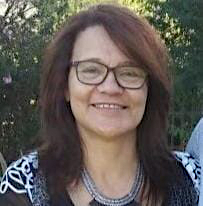 Michelle Mathey, Director of Teacher Education, DHET
Michelle Mathey, Director of Teacher Education, DHETMs Michelle Mathey introduced the webinar and provided some background on the Advanced Diploma in Technical and Vocational Teaching, or Adv. Dip (TVT). Just over five years ago, the EU and the DHET signed the Teaching and Learning Sector Reform Contract, as a response to specific needs with the South African Education, Training and Innovation sector. The focus of the contract was to strengthen the capacity of the post-school education system, specifically teacher education, for which the DHET received a €20-million grant. The Adv. Dip TVT is one of the programmes being developed within the College Lecturer Education Project (CLEP), a sub-project within the TLDCIP aimed at developing capacity at universities for lecturer development for the TVET and CET sectors, and by the number of registrants — 272 — one can see there is significant interest in this course.
The first speaker was Ms Precious Sipuka, who outlined what the CLEP is about. It aims to develop professional qualifications for TVET lecturers and is supported by 14 South African universities, developing a range of qualifications, from the Adv. Dip TVT to the Bachelor of Education in Technical and Vocational Teaching. The Adv. Dip TVT may be offered either as a professional teaching qualification to prospective TVET lecturers or as an in-service professional teaching qualification to current lecturers who are in possession of at least an approved 360-credit Level 6 National Diploma or relevant Bachelor’s degree, or as a “capping” qualification for lecturers who have undergraduate degrees, enabling them to lecture in technical and vocational subjects, and providing access to postgraduate educational degrees. The programmes have been developed in partnerships between universities and colleges, with funding by the EU.
Prof Wayne Hugo said this question has been asked about TVETs: where are they, what do they represent, and what function do they serve? His presentation showed, using Google Earth, where the colleges are situated within their historical, political, geographical, economic and social contexts. For example, Vhembe College is situated near Maputo, which has historically always been a trading port; the Johannesburg colleges are near the mines and mine dumps of Gauteng. Every college has one of these videos available for students, so they know the broader context of their institution.
Mr Thomas Tiedemann, Team Leader, Governance and Social Sectors, from the EU Delegation, said education creates resilient and tolerant societies. The Teaching and Learning Development Programme has since 2015 aimed to uplift teachers and strengthen capacity. He congratulated those involved on the progress made so far. TVET training is extremely important for South Africa at this point, for staying abreast of the fourth industrial revolution and for the youth to obtain jobs. In Germany, as part of their education, learners spend some time in the workplace to obtain practical experience. Quality education is imperative for development, social justice and reducing inequality.
 Professor Wayne Hugo, Lecturer and Research in the School of Education at the University of KwaZulu-Natal
Professor Wayne Hugo, Lecturer and Research in the School of Education at the University of KwaZulu-Natal
Ms Mathey spoke briefly about how students who receive training can become entrepreneurs when leaving college, employ others and thus contribute towards reducing poverty in South Africa.
Prof Joy Papier said the Adv. Dip TVT is essential and congratulated those who had put in the hard work to make it possible. Vocational pedagogy is still a topic of much debate, said Papier; what makes it special, and different from the usual pedagogy? The DHET has been emphasising how TVET lecturers must be recognised in their own right.
Prof Hugo said South Africa has a different context to other countries such as Germany. The big question is, should vocational pedagogy slowly transform existing practice, or radically transform it? Teachers cannot change overnight, he pointed out; they must “know how, know that, and know it” thoroughly in order to pass on knowledge to students properly. Most of the time there is theoretical knowledge — “know that” — but there is also a practical component in their learning, where “knowing how” happens. Research shows that there is rote learning taking place, but this must be broken down into parts; examples must be given, placed within context, etcetera. Hugo then provided an example video of a lecturer from Ehlanzeni TVET College doing a lecture during the Covid-19 lockdown period, on how to work with an oxy-acetylene torch.
 Dr Vasidevan Naiker is Principal Tutor in the Department of Educational Information and Engineering Technology at the University of Witwatersrand
Dr Vasidevan Naiker is Principal Tutor in the Department of Educational Information and Engineering Technology at the University of WitwatersrandDr Vasideven Naiker said we need to stop, step back and understand what vocational education is: preparing people to function at a specific level, usually within employment situations. TVET lecturers have a distinctive role to play: not only to understand their subject, but also staying abreast of changing work situations in 21st century. The lecturers must be able to change quickly to stay up to date, and skills can only properly acquired through practice. ICT (information and communications technology) skills have become vital for lecturers, for creating online teaching videos, for example. Simulators are often used in colleges, for safety purposes and to reduce costs. Technologies can also be used for communities of practice, for lecturers and students, to facilitate knowledge sharing. Virtual learning enables students to visualise processes in the TVET learning material.
Prof Papier said we must train college lecturers in a way that they are able to pass on their skills effectively. It must be a hybrid of old and new ways of teaching, with the goal of vocational education in mind. Bill Lucas’s paper on vocational pedagogy states that the goal is different to academic qualification; it’s more about how you teach, and what teaching methods are used. Authentic learning is vital: this involves activity-based learning; problem-solving learning; integrating theory and practice; and a mix of workplace-oriented and disciplinary knowledge. There is also a specialist knowledge component. TVET lecturers will be able to enrich their qualification and knowledge with the new diploma, said Papier.
Questions
With the current cohort of lecturers who have now been introduced to the use of LMSs (learning management systems) for teaching, learning and assessment, how can we capacity build them in practice, using the Adv. Dip TVT? Prof Hugo answered that Tenet (Tertiary Education & Research Network of South Africa) is busy laying down high-speed internet cable to all TVET colleges in South Africa. It will be freely available and have huge capacity. But, how is this going to be used? A professional qualification will centre things and enable a higher status for lecturers in the TVET space; then we can bringing SETAs on board and train lecturers in ICT. The new diploma enables access to postgraduate degrees and will ensure that research takes place in the TVET space.
There will definitely be collaboration between industry and colleges regarding instituting the new diploma. SACE (South African Council for Educators) is tracking teachers’ progress to ensure they stay on track and keep learning. The DHET and EU has set a marker to keep vocational lecturers on course.
Will there be a bridging course for those with insufficient qualifications to enter the diploma? Yes, if they have a trade; Wits won’t be leaving anyone behind, said Dr Naiker. There is a gap between Level 5 and this diploma, which is Level 7, said Prof Hugo; this is a problem, and it does need to be addressed.
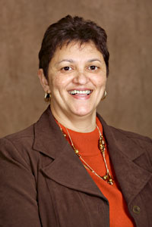 Professor Joy Papier, Director of the Institute for Post-School Studies at the University of the Western Cape
Professor Joy Papier, Director of the Institute for Post-School Studies at the University of the Western Cape
How can the private sector contribute? Workplace exposure is vital for students, pointed out Prof Papier. There are many industries that have come onboard in this regard, particularly at Majuba College in Newcastle; there are many industries surrounding the college, and they are working closely with it. But many colleges don’t have industries near them, or private workplaces don’t acknowledge the role of colleges sufficiently. Lecturers at TVET colleges need practical experience themselves to pass on practical knowledge properly. A concerted strategy is required to bring private workplaces onboard so that the relevant practical knowledge can be acquired.
Ms Mathey then wrapped up the first part of the webinar, and introduced the next session.
Session Two
Ms Gerda Venter moderated the second part of the webinar. She addressed her first questions to Neville Rudman, concerning which curriculum choices were made in designing the new diploma. Four knowledge types are prescribed: psychology, philosophy, sociology and the history of education; and lecturers must be exposed to these as they relate to education. The biggest section is pedagogical learning, involving how to teach practical vocational training; then there is situational learning, and practical learning. Everything must supplement practice: how will the theory learnt be relevant to students’ practice?
It was easy to integrate with Nelson Mandela University’s values, as this diploma is part of the humanising pedagogy the university espouses, said Venter. We tried to situate the diploma within the African context and 21st century skill requirements, such as resilience and adaptation to technology. Importantly, pedagogy today must be situated within the context of work.
 Moses Makgato, Research Professor at Tshwane University of Technology
Moses Makgato, Research Professor at Tshwane University of Technology
Prof Moses Makgato said designing the diploma was a process that had to go past several committees in the university. A public prospectus of the diploma was then run past TVET colleges. Students then made applications to do the course, and a timetable was drawn up for a two-year Saturday course for TVET lecturers, but implementing the programme was interrupted by the Covid-19 pandemic. There were 66 applications, and we had to contact everyone by email and invite them online so they could do online modules. A process of dialogue ensued, and assessments began.
Mr Rudman said collaboration is key for this diploma, and there has been great interest and hunger for it. Vhembe College has been very helpful in getting it on the road. ICT is also essential: lectures have been put onto Zoom and shared. Support is another pillar, especially for those who are unfamiliar with online processes.
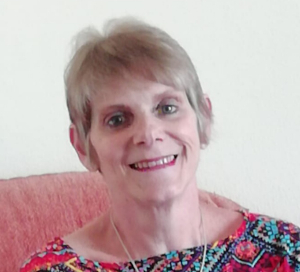 Helena Oosthuizen, Head of Department for Post-Schooling within the Faculty of Education at Nelson Mandela
Helena Oosthuizen, Head of Department for Post-Schooling within the Faculty of Education at Nelson MandelaMs Helena Oosthuizen, the Head of Department for Post-Schooling within the Faculty of Education at Nelson Mandela, said there was a lot of interest in the diploma, but plans had to change dramatically when the pandemic hit. Three modules designed by Wits were adapted them for TVET purposes. Some more strategies must be put in place, but with the help of some full-time employed students we completed the course, and began to run it in 2019; the first cohort has is about to graduate! We have about a 90% throughput rate, which is remarkable considering the pandemic; many have been hospitalised, and three students actually died. Partnerships with industry must be strengthened, pointed out Makgato.
Venter provided an overview of the Adv. Dip TVT, which is designed to capacitate TVET lecturers. The project plan was approved by the Director-General of the DHET in April 2019, and comprises digital open learning materials for eight courses, aligned with the curriculum content. There are 120 credits in the course, which was designed by the South African Institute for Distance Education (SAIDE) based on a Shareable Content Object Reference Model (SCORM) package. This Open Education Reference (OER) model can be used by universities and is contextually relevant to TVET colleges.
The diploma is quality assured by individual universities and aligned with Policy on Professional Qualifications for Lecturers in TVET and the 2016 Curriculum Framework for the advanced diploma in technical and vocational teaching. Copyright is held by the DHET, but it is available to anyone online. SAIDE developed the content and then refined the final product and quality assured it. The contract was drafted and submitted to the DHET, and implementation of Phase 2 will begin in 2021. There was collaboration from TVET colleges, which provided several writers and significant input.
In response to questions, Venter said the diploma is available to all, although it is still in the testing phase; it should be ready by February 2021. The diploma may become available as short courses at some future point, said Rudman.
Some questions were then addressed to Ms Zanele Masombuka, a student at TUT who holds a National Diploma in Tourism Management (Unisa) 2017 and Btech in Tourism Management (TUT) 2018 and working as an Administration Assistance and Mr Rathogwa Thivhavhudzi, a student in the Adv. Dip TVT programme at NMU and lecturer at Vembe TVET College, Mavhoi campus in electrical engineering and holds a National Diploma, Electrical Engineering from TUT and a Project management NQF L8 from Wits.
 Zanele Masombuka
Zanele MasombukaMs Masombuka wants to become a lecturer; she specialises in tourism, which she says has great potential for developing South Africa. She said her lecturers have been very supportive, and responded to her questions timeously. Data was provided by the university, but many students don’t have laptops, and had to use their cellphones for studying. Several students also have network coverage problems, as they live in remote areas. She said the course is challenging, but she would encourage other students to do the diploma.
Mr Thivhavhudzi said lecturers at TVET colleges need to visit industries to obtain more practical knowledge. He said his experience of the online course was that it was difficult at first, but he received the necessary support and data from NMU to complete the diploma; he added that students must be adaptable to the new ways of learning. Humanising pedagogy is essential, to instil ubuntu, and to encourage students to interact, be responsible and learn to respect each other. He said the diploma encourages critical thinking and embraces 4IR, which is essential for all of us today.
Session 3
 Dr Morgan Maphutha is a Deputy Director for Post-School Teacher Education at the Department of Higher Education and Training
Dr Morgan Maphutha is a Deputy Director for Post-School Teacher Education at the Department of Higher Education and TrainingDr Morgan Maphutha, Deputy Director for Teacher Education, DHET said it was a real pleasure to be part of the dialogue on the Adv. Dip TVT. He introduced Sello Sethusha, who spoke about the progress made in the systemisation of continuous professional development (CPD). A conference was held in 2018 to address the gaps in the system, and research was then conducted, which discovered that about a quarter of lecturers were unqualified; less than 5% were adequately qualified for the sector. This means that lecturers need to be exposed to more learning, and this is where the Adv. Dip TVT fits in. The DHET is working with SACE on this matter.
Sethusha outlined which institutes have implemented programmes and many already have graduates, indicating there has been CPD progress made since 2018. Partnerships with universities in Germany are being discussed. A lecturer development centre has been set up and master trainers have been trained. CISCO has trained 163 lecturers and over 1000 lecturers have been trained in digital literacy. There are also partnerships with China and the British consul for training programmes. TVET colleges are doing inhouse trainings for their lecturers, and SETAs are working with TVET colleges regarding 4IR training programmes for lecturers.
Relevant policies are frameworks are needed to strengthen lecturer development programmes. Online teaching is becoming more important, and all lecturers need to become adept in this so that students can benefit.
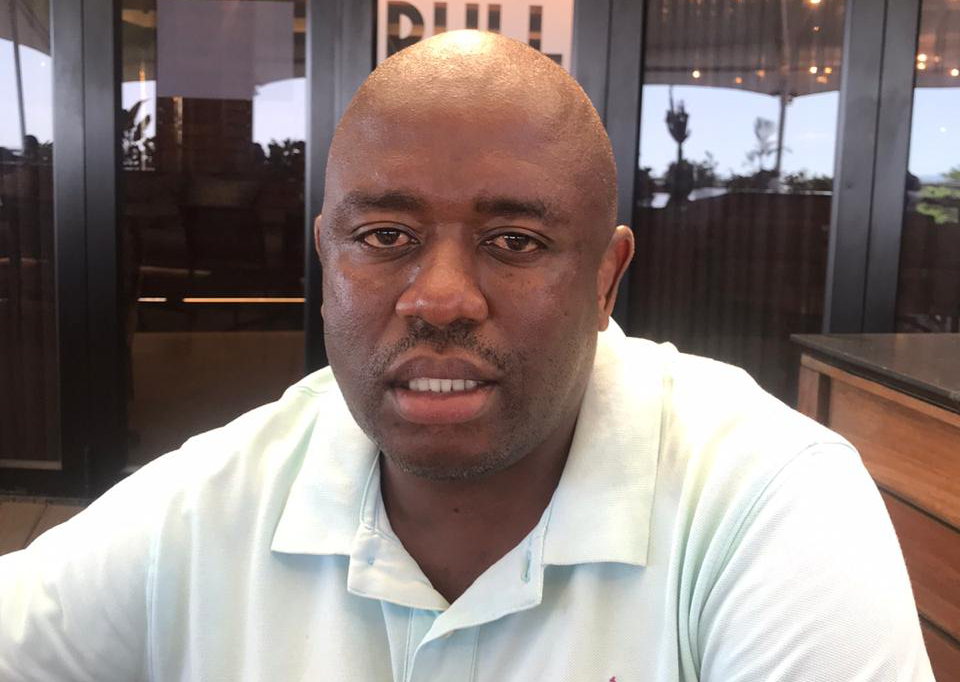 Rathogwa Thivhavhudzi
Rathogwa ThivhavhudziThe Journal of Vocational Adult and Continuing Education Training (JOVACET) has been supported by the DHET and EU, and plays a very important role for training TVET lecturers, and to give South Africa and the Global South a voice for its own quality research findings. The first JOVACET journal came out in 2018; every article is peer-reviewed in a double-blind process by two reviewers before publication. The journal is supported by the Manufacturing, Engineering and Related Services Sector Education and Training Authority (MerSETA). There have been three hard copies published, and JOVACET is also online; accreditation will hopefully be forthcoming soon. It will become an important part of the adult education landscape soon.
Closing remarks
Closing remarks were made by Dr Whitty Green, who remarked that this webinar was both fascinating and informative. Good progress has been made in implementing the Adv. Dip TVT, and the 14 universities involved must be highly recommended, as well as all the partners, industries and SETAs involved. More partners are required for this endeavour. This diploma will strengthen building staff and research capacity. JOVACET is growing in stature, and is poised for full accreditation. It will become the voice of the research community in TVET; it will also become the vehicle to disseminate new knowledge and take the sector forward.
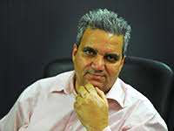 Dr Whitty Green, Chief Director: Teaching, Learning and Research Development, DHET
Dr Whitty Green, Chief Director: Teaching, Learning and Research Development, DHET
“It all starts with the teacher, which was brought to the fore by the pandemic”. There was a rapid shift to online learning, but teacher mediation is still necessary. Our teachers must be technologically astute, but still mediate learning. Marketing is vital, and we invite universities to aggressively market these qualifications, so that people in the sector become aware of them and enrol in them. Universities cannot market a qualification until it has been accredited, but this has now occurred.
The Adv. Dip TVT is for teachers who have an undergraduate degree and need a capping qualification: it’s the equivalent of the postgraduate qualification offered to school teachers. A portfolio of qualifications is required that addresses the needs of all the lecturers. We have to support access to these qualifications, and that requires funding, and we have to make this widely available. Higher education institutions can only do so much; there is a pressing need for practical skills. A partnership with the Quality Council for Trade Occupations is required to address the needs of those in colleges. Tripartite partnerships with universities, colleges and industries are also necessary. Everyone has to be proactive in engaging, and we can’t just point fingers at the DHET.
Technological innovations must be embraced; rendered learning is no longer a choice. Teachers must become skilled in using rendered modalities in their teaching practices. We have to create alignments between qualifications-based development and short course CPD.
Green thanked all the people involved in this webinar, and especially the EU for their role in teacher education and development.
Mathey closed proceedings and acknowledged the late Dr Andre van der Bijl from the Cape Peninsula University of Technology, (Project Coordinator for the CLEP projects at CPUT) for his significant contribution to the TVET sector.
To view the webinar, click on the YouTube link below: